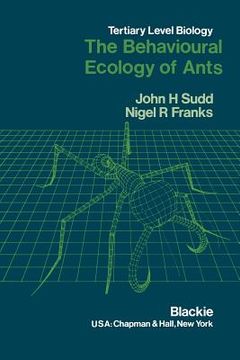Synopsis "The Behavioural Ecology of Ants"
This book is concerned with two problems: how eusociality, in which one individual forgoes reproduction to enhance the reproduction of a nestmate, could evolve under natural selection, and why it is found only in some insects-termites, ants and some bees and wasps. Although eusociality is apparently confined to insects, it has evolved a number of times in a single order of insects, the Hymenoptera. W. Hamilton's hypothesis, that the unusual haplodiploid mechanism of sex determination in the Hymenoptera singled this order out, still seems to have great explanatory power in the study of social ants. We believe that the direction, indeed confinement, of social altruism to close kin is the mainspring of social life in an ant colony, and the alternative explanatory schemes of, for example, parental manipu- lation, should rightly be seen to operate within a system based on the selective support of kin. To control the flow of resources within their colony all its members resort to manipulations of their nestmates: parental manipulation of offspring is only one facet of a complex web of manipul- ation, exploitation and competition for resources within the colony. The political intrigues extend outside the bounds of the colony, to insects and plants which have mutualistic relations with ants. In eusociality some individuals (sterile workers) do not pass their genes to a new generation directly. Instead, they tend the offspring of a close relation (in the simplest case their mother).

